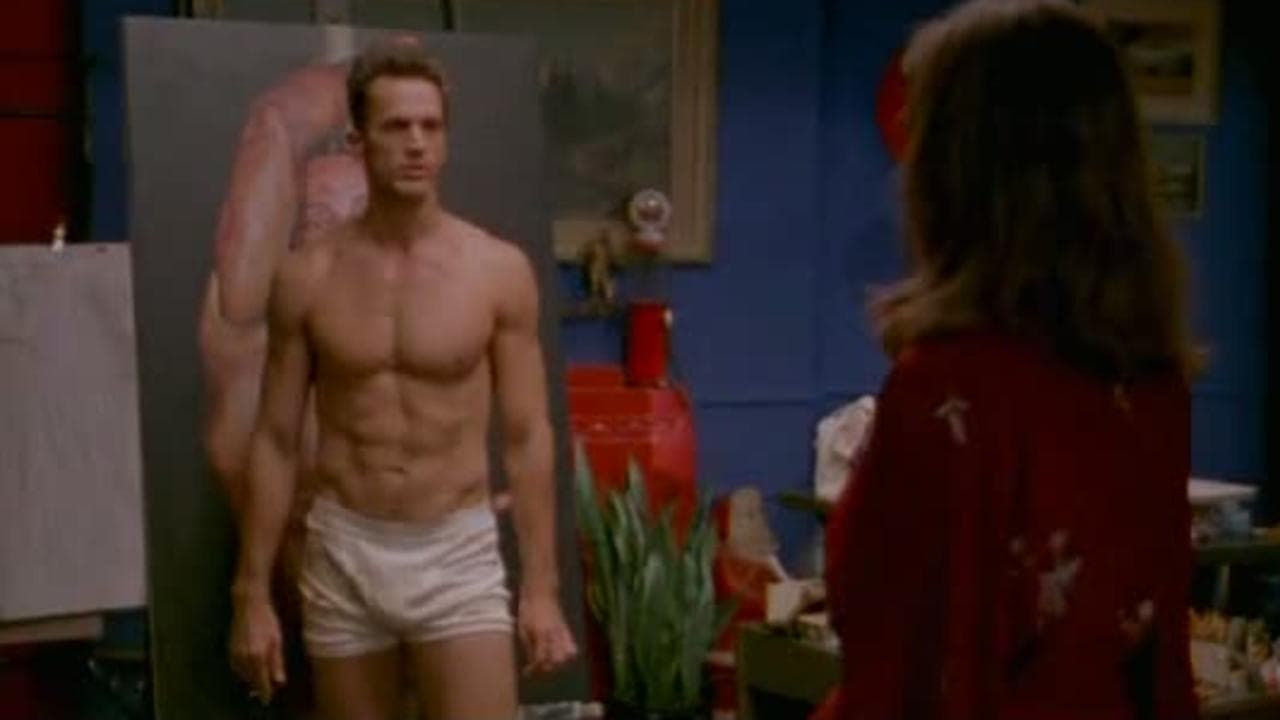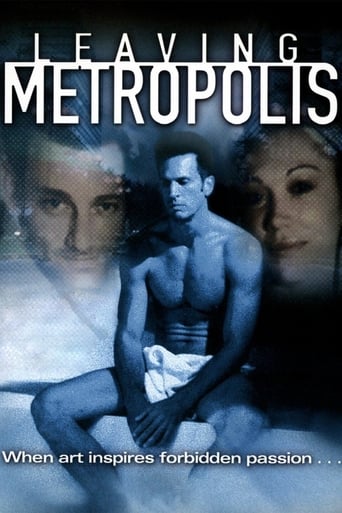

After playing with our expectations, this turns out to be a very different sort of film.
... View MoreIt’s fine. It's literally the definition of a fine movie. You’ve seen it before, you know every beat and outcome before the characters even do. Only question is how much escapism you’re looking for.
... View MoreThis film is so real. It treats its characters with so much care and sensitivity.
... View MoreWhile it doesn't offer any answers, it both thrills and makes you think.
... View MoreWarning: Some Spoilers The strange thing about this film is that despite its weaknesses, it still works. It generally keeps your interest to the end, even though there were obviously scenes that didn't make the cut that probably should have, at least to make certain things a little clearer. The main character, the painter, wasn't really charismatic enough - you don't really see the relationship between him and his boss developing. The are both suddenly "in love" with almost no sense of tension, subtext or reason. All the other people in the film were quite adequate. The fag-hag best friend is one of the most realistic alcoholics I've seen in film. Without staggering or slurring her words, she gives you a definite sense that she is seeing everything through a glass darkly. The transsexual for once makes you really think of her as a woman, without exaggerating anything. The first time we see her without one of her wigs on is truly a shock. The wife-victim is perhaps the least finely drawn of the characters, and her initial reaction to the situation is not quite as believable as it should be... but somehow she still makes us care about her hurt.I think the best thing about this film is the cinematography. The interior shots were created with a colour-scheme which would have been worthy of an Almodovar film. I think that one of the things that really makes this film (sort of) work is that visually we are rarely asked to look at something unappealing. All of the naked bodies (male or female) are wonderful to look at, and they are shown often enough to basically seduce us into caring more than we probably should have. I get the feeling that the film could have worked better if they had added only two or three more scenes which would have allowed for some more character motivation and development. Some people may not like the fact that (one more time) there is a gay in the film that dies of AIDS... but that has been one of the realities of gay life for the last 20 years, and I see no reason to necessarily avoid it. All in all, not a great film, but an interesting one that at least makes us care about some if not all of the characters. An A for effort, a B for results.
... View MoreFrom the description in the television guide, I wasn't sure if I'd like this one. But, thanks to 'Here!' channel, I got to see it uninterrupted and found it to be a super film ... a very insightful story of very believable characters by an extremely talented, perfectly-cast, fascinating group of actors(none of whom I have ever seen before, but hope to see often). Of course, the brilliant author/director had 'something to do with it'. I found each character to be fully drawn and could identify with each of them ... something I don't see often in films.I want to see more about these people. Thank you all for sharing with us.Please, folks, do not hesitate to dive into this one with both feet and your whole heart.
... View MoreTwo hot-bodied hunks dominate this Canadian gay drama about an artist who falls in love with a married "straight" guy. This independent Canadian drama from Brad Fraser, the writer of Love and Human Remains focues on David, a controversial gay painter in the remote Canadian province of Manitoba. His financial success has brought him fame, money and a dull life. He basically hangs out with Kryla, a straight woman and Shannon, an HIV positive trans woman who is also his roommate. To get some inspiration, he takes a job as a waiter at a small cafe run by a married couple, Matt and Violet. The last thing he expects to do is fall in love with Matt, but that's just what happens. David starts painting again -- homages to Matt, his new love wreaking havoc on the marriage and on David. While Leaving Metropolis feels like an old-style "gay movie" -- poor writing and stilted characters, it does have something to recommend. There are several fairly intense sex scenes, both straight and gay and these two guys aren't shy about showing us their bodies. No full-frontal nude shots, but plenty of underwear and chest showing and these two boys have a lot to look at. After some research we learned that the film is based on Fraser's stage play Poor Super Man which had a whole different premise to it. The play emphasized David's personal feelings toward the comic book hero Superman and how he was just as perfect as his hero. Of course, what the play was showing was that no one is perfect. Unfortunately that storyline has been trimmed down in the film. Just a simple gay melodrama with some sweet skin.
... View MoreThis comment contains a huge spoiler which actually is the reason I'm writing it. More times than most when a writer hands his book, screenplay, story, etc. over to a studio where a new screen adaptation is required, plus a new director, the film is usually unrecognizable from the author's original intent. This movie is one of those rare times when a new script and definitely a new director was needed. When a playwright/stage director/moviemaker goes to put his work on screen, he quite often cannot look at the finished product objectively.Listening to Brad Fraser's commentary on the DVD, he explains so many things that he thought the viewer should've known, but in his concept they were never made clear. For example, he tells us that when the husband enters the bus station, that folded piece of paper under his arm is his acceptance letter from a school for cartooning. That would be great if only the viewer had been told that or even a close up of the paper. But in Fraser's mind, we should have figured that out and where the husband was going. Duh... Fraser keeps telling us 'hidden' things to look for. In his mind he filmed it, so why were we so stupid NOT to notice? I realize that Brad Fraser was the god of this film. Everything in it is his own creation and he and only he should have the right to control each and every destiny. Whether Fraser would like to call this a gay movie or not is up to him.To me it's in the vein of a lot of gay movies which are oxymorons."GAY" movie without a happy ending. What's gay about it? Why do gay writers or producers of gay films insist on unhappy endings. Gays are either depicted as stereotype sissy faggots...or dying Camille's.Can't someone, some time, write a serious drama about gays with good acting and let the two heroes ride off into the sunset? The acting in "Leaving Metropolis" is some of the best I've ever seen, especially Vince Corazza and Cherilee Taylor. They play so well together it makes you wonder why a straight masculine husband would leave his wife for a guy who is so fey? Look at the way Troy smokes a cigarette...it's one step above Bette Davis. Brad keeps talking about his low budget of one and a quarter million dollars. Damn! I've seen better movies with half the budget. Sorry Brad, but the movie you THOUGHT you made and the movie that the viewer sees are worlds apart. After all that the husband and artist went through, not to mention us the audience, the least you could do would be to have the heroes wind up together. Great ideas but sloppy executions!
... View More